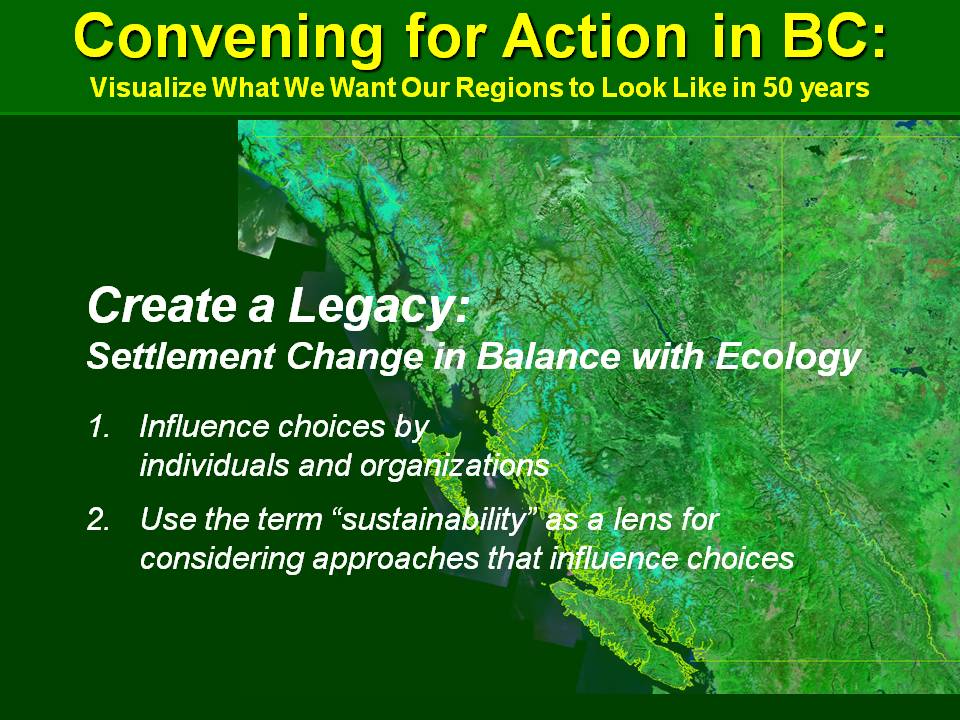Water Bucket publishes excerpts from "Beyond the Guidebook 2010" about why and how to re-focus ISMPs on outcomes
We Can Create Our Future in BC
Released in June, Beyond the Guidebook 2010: Implementing a New Culture for Watershed Protection and Restoration in British Columbia is aligned with Living Water Smart, British Columbia’s Water Plan. The latter articulates provincial policy to achieve a vision for ‘green’ development, one that protects stream health, fish habitat and fish.
Beyond the Guidebook 2010 tells the stories of the champions who are implementing change on the ground. Equally important, this guidance document also presents a framework for establishing watershed-specific performance targets and implementing green infrastructure.
Re-Focus Integrated Stormwater Management Plans (ISMPs) on Outcomes
Getting there may require a course correction in the way some Integrated Stormwater Management Plans (ISMPs) are being developed. During the period November-December 2010, Water Bucket is publishing a series of five weekly articles that will elaborate on what is an ISMP, how local governments can do more with less, and how they can ensure plans are outcome-oriented.
 “Outcome-oriented planning is a problem-solving PROCESS. It is not a procedure. It is not a matter of applying a regulation or a checklist,” states Tim Pringle, President of the Partnership for Water Sustainability in British Columbia, the newly created society that now encompasses the program elements for the Water Sustainability Action Plan for British Columbia.
“Outcome-oriented planning is a problem-solving PROCESS. It is not a procedure. It is not a matter of applying a regulation or a checklist,” states Tim Pringle, President of the Partnership for Water Sustainability in British Columbia, the newly created society that now encompasses the program elements for the Water Sustainability Action Plan for British Columbia.
“Going through a process becomes talent development. Participants have to be committed to the outcome. To get there, they have to function as a team. It is the talent development process that enables development of outcome-oriented plans. It is very definitely a grounded approach.”
ISMP Course Correction: The ‘Beyond the Guidebook 2010’ Series
The purpose in publishing the “ISMP Series” is to draw attention to lessons learned and insights gained by those local government leaders who have ISMP and related experience. The publication schedule, titles and scope of the five stories in the series are listed below:
- November 16, 2010:
Story #1 titled Integrated Rainwater Management Planning: Re-Focus on Stream Health and Watershed Outcomes — The first in the series provides regulatory and historical context, identifies introduces guiding principles for implementing change on the ground, explains what outcome-oriented means, and sets the stage for the four stories that follow.
- November 23, 2010:
Story #2 titled Integrated Rainwater Management Planning: Capitalize on Green Infrastructure Opportunities to ‘Design with Nature’ — The second in the series explains why ‘designing with nature’ is key to climate change adaptation; identifies what municipalities will need to do to protect or restore stream health; and introduces principles upon which a Regional Team Approach to green infrastructure implementation is founded.
- November 30, 2010:
Story #3 titled Integrated Rainwater Management Planning: Apply a Knowledge-Based Approach to Focus on Solutions and Outcomes — The Bowker Creek Initiative in the Capital Region, the City of Surrey’s watershed objectives approach, and the District of North Vancouver’s vision for watershed landscape restoration are showcased. - December 7, 2010:
Story #4 titled Integrated Rainwater Management Planning: Move to a Levels-of-Protection Approach to Sustainable Service Delivery — The fourth in the series concludes with three examples that illustrate how local government leaders are integrating land use planning and asset management, and are moving forward with Sustainable Service Delivery in British Columbia.
- December 16, 2010:
Story #5 titled Integrated Rainwater Management Planning: Apply Inexpensive Screening Tools and ‘Do More with Less’ — When the use of screening tools is coupled with the front-end effort to create a Watershed Vision, this stretches a local government dollar further.
The sharing of experience will help stretch limited resources so that local governments can ‘do more with less’ in applying and benefitting from a ‘regional team approach’.

Posted November 2010


